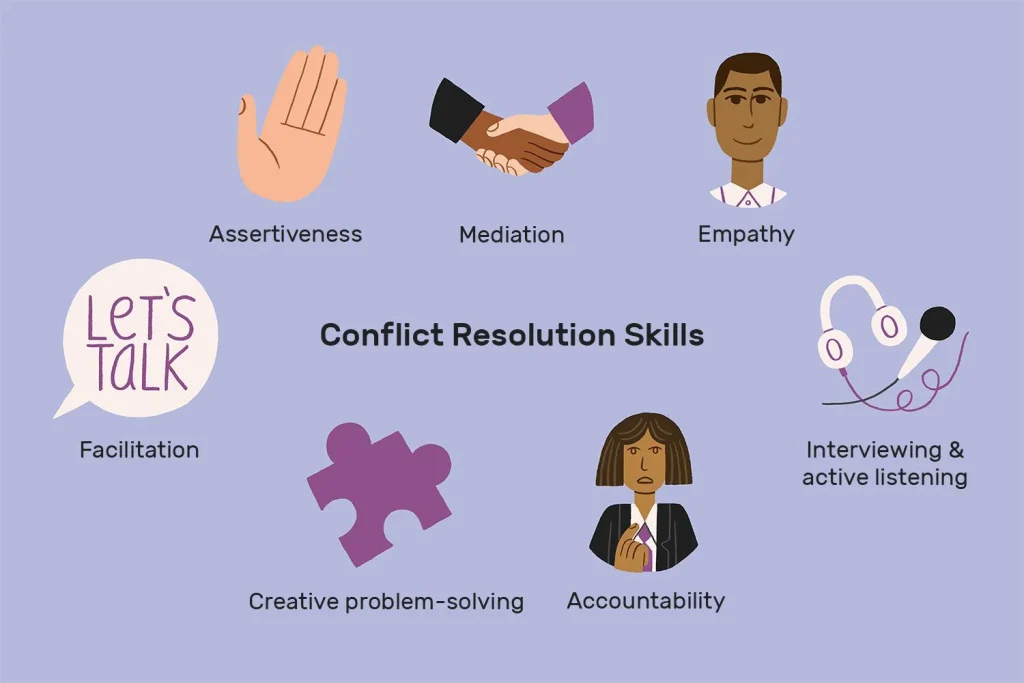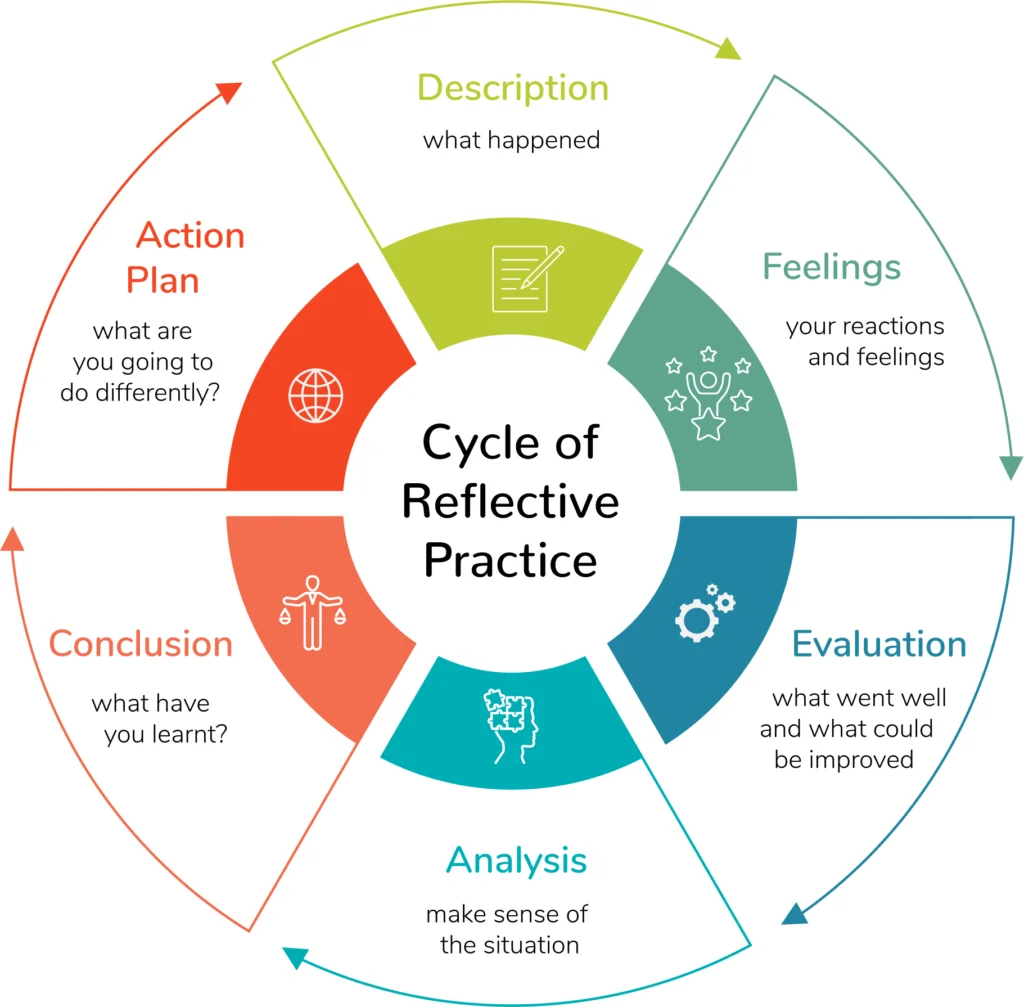Key Takeaways
| Definition and Significance of Social Awareness | Social awareness is understanding and responding to others’ emotions, requirements, or social cues. This is an important skill in developing strong relationships with empathy and promoting efficient communication. |
| Importance for Leaders | It is very significant that leaders have social awareness since this builds trust, enhances communication, resolves issues among team members, and establishes a good office culture. Leaders who are empathetic and socially aware can be able to better support their teams, which leads them towards organizational success. |
| Practical Tactics for Leaders | Active listening, empathy, open communication, cultural competence, conflict resolution, feedback encouraged, and reflective practice are some of the ways through which leaders can exercise social awareness. Thus, these tactics foster a stronger sense of teamwork among subjects. |
| Improving Social Awareness | Such factors as limited experience with diverse cultures, incompetent interaction skills, emotional insensitivity, high levels of stress, anxiety problems, and no feedback will result in a low level of understanding for others. Realizing these causes is an initial step towards improving oneself. |
| Causes of Social Awareness Deficits | A broader understanding of others, better personal and professional relationships, improved team dynamics, and a more harmonious and inclusive environment are some of the benefits associated with developing social awareness. Through social awareness, people can establish good rapport with other individuals, as they can know what most people think. |
| Benefits of Social Awareness | A broader understanding of others, better personal and professional relationships, improved team dynamics, and a more harmonious and inclusive environment are some of the benefits associated with developing social awareness. Through social awareness, people can establish good rapport with other individuals, as they can know what most people think. |
What is Social Awareness?
Social awareness involves the ability to comprehend and respond appropriately to the emotions, needs, concerns, and issues of others by recognizing their social cues and empathizing with them in moments of need. Fundamentally, this skill helps build strong relationships, fosters collaboration among members, and creates inclusive environments.
It brings people together on a deeper level,, enhancing mutual understanding and respect. Socially aware individuals improve their personal lives by interacting closely with colleagues at work or friends outside work.
The concept has the potential to enhance interpersonal relations in various ways, leading to win-win situations.
Why is Social Awareness Important?
A socially conscious person will always easily navigate complex social interactions while being compassionate towards others’ emotions. This kind of skill enables an individual to identify others’ feelings as well as cater to their needs within a supportive atmosphere.
It’s essential in leadership since trust is established; communication gets better while conflicts are solved amicably. Hence, leaders who have developed this emotional intelligence help in building a positive organizational culture where there are improved team dynamics that bring about corporate success.
Furthermore, it leads to personal development through the improvement of emotional intelligence plus interpersonal skills.
How To Be A Leader In Social Awareness: 7 Strategies
Listening Actively
The process of active listening includes concentrating on what is being said rather than simply hearing the message. For a leader, this implies giving undivided attention to the speaker, making eye contact, and not being distracted. It is important to understand the speaker’s message completely before answering if trust and respect are to be established.
When you actively listen, your team will know that their thoughts matter, thus leading to more truthful conversations between you people. This practice also helps in correctly understanding worries and responses, which can be vital in making educated decisions.
Compassion
Empathy in leadership involves sharing others’ feelings as if they were your own, an essential quality of effective leadership. Leaders who have empathy establish real connections with their subordinates because they know their aspirations, fears, and barriers, amongst others.
These ties build a supportive environment where team members feel valued and comprehended. Empathetic leaders also understand how their choices will affect the team, thereby encouraging more thoughtful and inclusive decision-making processes.
Here, leaders show genuine concern for staff welfare and, therefore, end up developing strong teams that are loyal and committed.

Open Dialogue
Creating an atmosphere where everyone in your group feels safe enough to voice opinions or ideas without fear of being condemned is called fostering open communication. Being warm and approachable as a leader is key to doing this while at the same time ensuring that feedback from your employees is captured.
This can be done through regular check-ins, open-door policies, and avenues for anonymous feedback. Communication openness ensures that team collaboration takes place by building trust through transparency.
Leaders who encourage dialogue also make it easier for employees to address issues promptly while at the same time allowing for innovative ideas to come up.
Diversity consciousness
Cultural awareness in leadership is the ability to identify and respect different cultures, values, and perspectives within an organization. Knowledge of cultural differences can prevent misunderstandings and lead to inclusive environments where everyone feels valued.
Leaders should familiarize themselves with cultural practices and be sensitive to how these differences may affect communication or cooperation. Adjusting their leadership styles to be culturally aware enables leaders to operate more harmoniously as a team.
Moreover, this knowledge contributes to organizational diversity activities, which are vital for fostering innovation.
Resolving Conflicts
Proper conflict management skills are essential in maintaining a good working environment for effective team performance. To achieve this, a leader must be able to pick up conflicts when they start but not wait till they escalate into something that can damage team spirit and cohesiveness.
This involves finding out what causes conflicts, facilitating open discussions as well as coming up with solutions that all parties must accept by collaborating with them. Consequently, timely resolution of disputes will increase overall productivity and enhance positive group conduct.
Again, this consistently sets precedence for mutual respect and cooperation within teams where members feel free to air contrary views without fear of victimization.

Encouraging Feedback
Your team’s needs, concerns, and viewpoints can be kept in focus by regularly seeking feedback. By doing this, leaders demonstrate their respect for the opinions of others as well as their desire to make things better. Leaders must have more than one channel of feedback, like surveys or suggestion boxes and one-on-one interviews.
Taking note of the feedback actively received from your group members will indicate that you regard that input very seriously, which can enhance their commitment and dedication. Moreover, encouraging feedback will help managers identify weak areas and adjust their leadership styles and processes.
Reflective Practice
Reflective practice means looking back at what happened during an event or interaction so as to learn about it and improve it next time. It involves taking a critical look at your actions, decisions, interactions, and overall style of leadership.
One should take time off to reflect on aspects such as what went well, what could have been done differently, and lessons learnt applicable in future situations before embarking on another activity. To enhance reflective practice, a leader can maintain a personal journal or get trusted peers’ input concerning his or her performance.
Mindful practices also help in being present during social interactions while also paying attention to others’ emotions

How to Improve Social Awareness
Developing social awareness includes examining oneself, learning new things, and trying out different ways of life. Start by being observant of body language in the environment around you. Learn how to listen carefully when people speak without interrupting them but do not agree with all that is said.
Seek opinions about your conduct towards others from your friends or mentors who will tell you honestly. Apply this concept because it will assist me when dealing with individuals from various backgrounds. Additionally, mindfulness routines enable greater concern for other person feelings, enhancing my general interactions.
What Causes a Lack of Social Awareness?
- Inadequate exposure to varied social experiences hampers social awareness. People have to interact with others from diverse cultural backgrounds and experiences in order to understand and appreciate different perspectives.
- Ineffective communication skills like not being an active listener or misinterpreting non-verbal cues can lead to a lack of social awareness and misunderstandings. Good communication skills are important for positive social interactions.
- A lack of knowledge about one’s emotions and how these feelings affect other people impedes social awareness. Emotional intelligence which includes being able to identify what one feels as well as manage it, is vital for people who want to understand the emotions of others so that they can respond accordingly.
- Excessive stress levels make somebody unfocused on the right interpretation of body language. Reducing stress through meditation, relaxation techniques, exercise, and adequate sleep will help improve social sense.
- Without feedback from peers, it becomes difficult to know how your behavior influences those around you. They can help pinpoint areas where you may need additional guidance in developing more effective interpersonal skills.
Benefits of Developing Social Awareness
Enhanced Interpersonal Relationships
- Understanding the moods and thoughts of someone else is also part of empathy.
- Creating strong relationships that mean something.
- Creating trust when relating with each other then fosters mutual respect, hence creating lasting bonds among individuals who share common goals.
Improved Communication Skills
- Better understanding of nonverbal signals plus appropriate responses regarding them.
- Knowing how to converse effectively with peers.
- Smooth conversations are lessened by reducing misunderstanding, therefore avoiding conflicts.
Effective Resolution of Conflicts
- Detection and treatment of conflicts before they escalate.
- Understanding the emotions and motivations behind different points of view.
- Finding common ground and resolving disputes amicably amongst themselves.
Inclusive, Supportive Environments
- Recognizing and respecting various backgrounds and perspectives.
- Creating environments where everybody feels valued and included.
- Inclusiveness enhances morale, innovation, and creativity through diversity.
Growth in Personal & Professional Life
- Increasing emotional intelligence and self-regulation.
- Becoming more adaptable as an individual while increasing self-knowledge about oneself as well as others.
- Inspiring teams to perform at higher levels of performance resulting in job satisfaction
Conclusion
Empathy, understanding, and effective communication skills are all enhanced by social awareness, which is crucial for personal or professional relationships. Indeed, it is essential for leaders to create a positive, inclusive workplace culture.
By practicing active listening, empathy, and open communication, leaders can improve their social awareness, thus enhancing their ability to lead effectively. Working on the causes of social awareness deficits can make interactions more harmonious and productive.
In conclusion, personal growth is influenced by social awareness, which also impacts organizational success.
FAQs
What is meant by social awareness?
The capacity to comprehend and respond appropriately to other people’s emotions, needs, and social cues defines this term.
Why should leaders consider being socially aware?
Social awareness helps leaders build trust, enhance communication, and establish a positive working environment, which will facilitate better team dynamics and lead to successful organizations.
How can I improve my level of social awareness?
Listening actively enables one to empathize with others, seek feedback from colleagues at work, continuously participate in diverse societal gatherings, and carry out mindfulness practices.
What are the reasons behind individuals lacking social awareness?
They include limited exposure to diverse social situations, poor communication skills, emotional unawareness, stress and anxiety, and lack of feedback.
What strategies can be used by leaders in developing their social awareness?
Some of these measures include being actively involved in listening, displaying empathy towards other people’s feelings all the time, ensuring openness of communication, cultural understanding, conflict resolution, encouraging feedback, and reflective practice.

Russell F. Jones, holding a Master in psychology from the University of Florida. He writes for Smart Parent Solutions, offering practical advice on parenting and child development. His engaging content helps parents navigate family life with confidence and ease. Russell enjoys sharing his knowledge and spending quality time with his family.
